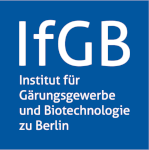BioProScale 2024 - Scientific Poster
- P01: Towards a biological-driven bioprocess development
Nadja Alina Henke, Karlsruhe Institute of Technology, Germany - P02: Creating a closed process semi-automated workflow for human MSC Expansion, harvest, and final fill
Julien Muzard, Entegris - P03: Mimicking large-scale mixing times in a laboratory scale single multi compartment bioreactor
Jonas Barczyk, Stuttgart University, Germany - P04: CFD-guided scale-down for end-in-mind bioreactor development: from 2000 L to 2 L
Miki Segami, Delft University of Technology, Biotechnology - P05: CFD simulation of pH gradients and their effect on ester hydrolysis by Candida antarctica lipase B
Caroline Hamelmann, Technical University of Denmark - DTU, Denmark - P06: Challenges of bioprocess scale-down on an automated Platform
Linda Lantian Cai, TU Berlin, Germany - P07: Microfluidic single-cell cultivation: A game-changer in predicting bioprocess scalability?
Julian Schmitz, Bielefeld University, Germany - P08: Bridging the protein gap using single cell protein
Koen Verhagen, dsm-firmenich, Science, Research & Innovation - P09: Robustness characterization of AMP producing C. glutamicum strains on single-cell level
Yannick Scholz, Karlsruhe Institute of Technology, Germany - P10: Analysis and control of expression heterogeneity of microbial gene circuits on a single-cell level
Boris Yermakov, Karlsruhe Institute of Technology, Germany - P11: Scaling - up of microbial biomass production, with immunomodulating potential
Mihaela Palela, The National Institute of Medical-Military Research and Development, Bucharest, Romania - P12: Design and optimization of animal component-free media for plasmid DNA production in E. coli
Kyle Probst, Kerry, Beloit, WI, USA - P13: From microtiter plate to fermenter: scale-up of a Vibrio natriegens fed-batch process
Clara Lüchtrath, RWTH Aachen University, Germany - P14: Process characterization across scales of an industrial Aspergillus oryzae aerobic fed-batch fermentation Process
Mariana Albino, Technical University of Denmark - DTU, Denmark - P15: Intensified proliferation of BY-2 plant cells in structurally modified culture bags for wave-mixed single-use bioreactor
Mateusz Bartczak, Warsaw University of Technology, Poland - P16: Development of an automated online flow cytometry method to quantify cell density and fingerprint bacterial communities
Juan Lopez Galvez, Helmholtz-Zentrum für Umweltforschung, Angewandte Mikrobielle Ökologie - P17: To feed or not to feed? – The challenges of glycerol fed-batch for Pichia pastoris expression in shake flasks
Christina Dickmeis, Scientific Bioprocessing Inc., Baesweiler, Germany - P18: Effect of cell culture production methods on the survival of probiotic yeast Saccharomyces cerevisiae var. boulardii in gut-like conditions
Dorotea Rzechonek, Chalmers University of Technology, Sweden - P19: Elementary Flux Mode Analysis predicts co-culture stability in continuous bioprocesses
Juan Andres Martinez Alvarez, Université de Liège, Belgium - P20: Benefits of Off-gas Analysis – Improved volume calculation for fermentations by monitoring the absolute humidity
Nils Arto, BlueSens gas sensor GmbH, Development - P21: Oxygen transfer in non-Newtonian liquids
Emilie Overgaard Willer, Technical University of Denmark - DTU, Denmark - P22: Membrane-free dissolved hydrogen monitoring in hydrolytic and methanogenic bioprocesses
Eike Janesch, TU Berlin, Germany - P23: Investigating signal attenuation in raman spectra of bacterial fermentations
Christoph Lange, TU Berlin, Germany - P24: Mathematical modelling of the oxygen transfer rate (OTR) as a first step towards the development of a digital twin
Marc Lemperle, Technical University of Denmark - DTU, Denmark - P25: Digital Twin Modeling of a Pilot-Plant Disk Centrifuge in GFPUV Production Downstream
Alina Anamaria Malanca, Technical University of Denmark - DTU, Denmark - P26: Robust tube-based MPC for controlling bioprocesses under uncertainty
Niels Krausch, TU Berlin, Germany - P27: Potential of predictive model-based dissolved oxygen control for intermittent fed-batch processes
Philipp Pably, Technical University of Denmark - DTU, Denmark - P28: Machine learning based compartment models for dynamic simulation of heterogeneous fed-batch processes
Hector Maldonado, Delft University of Technology, The Netherlands - P29: Accelerating Bioprocess Optimization and Scale-Up for a CHO Cell Culture Process Using Digital Models
Jannik Richter, Leibniz University Hannover, Germany - P30: Enzyme-Mediated Exponential Glucose Release: A Model-Based Strategy for Continuous Defined Fed-Batch in Small-Scale Cultivations
Annina Kemmer, TU Berlin, Germany - P31: Real-time Analysis of Multicomponent Bioprocesses Using Raman Spectroscopy and RAMANMETRIX(TM)
Jörg Weber, Biophotonics Diagnostics GmbH - P32: An open access platform for bioreactor
Xiyan Li, Technical University of Denmark - DTU, Denmark - P33: Data Management in Automated transdisciplinary laboratories
Simon Seidel, TU Berlin, Germany - P34: Silicon-Based Photonic Biosensors for Label-Free Detection of Microorganisms
Philipp Schrenk, TU Berlin, Germany - P35: Mechanistic soft-sensor design for protein refolding processes based on intrinsic fluorescence measurements
Florian Gisperg, TU Wien, Austria - P36: Developing a low cost, highly parallel, scalable, bacterial protein production workflow based on single-use bubble column reactors
Nathan Wright, University of Oxford, United Kingdom - P37: Secretory production of bifunctional proteins with Corynebacterium glutamicum
Vera Waffenschmidt, Forschungszentrum Jülich, Germany - P38: Accelerated secretion efficiency screening for the production of microplastic-binding peptides in C. glutamicum
Rebecca Hamel, Forschungszentrum Jülich, Germany - P39: Development of a non-canonical amino acid-labeled [NiFe]-hydrogenase production system in Escherichia coli
Qin Fan, TU Berlin, Germany - P40: Heterologous production of an active hydrogenase using lactose-based autoinduction
De La Fuente Kratzborn Francisco, TU Berlin, Germany - P41: Bioprocess development to produce a hyperthermostable S-methyl-5′-thioadenosine phosphorylase in Escherichia coli
Julia Schollmeyer, TU Berlin, Germany - P42: Characterization and optimization of peroxidase production in Komagataella phaffii with accelerated bioprocess development through automation and miniaturization
Christian Wagner, Forschungszentrum Jülich, Germany - P43: Automated strain library screening and bioprocess optimization of heterologous production of sakacin P in Corynebacterium glutamicum
Lisa Prigolovkin, Forschungszentrum Jülich, Germany - P44: Advanced workflows for the systematic identification of metabolic optimization targets in DBTL-cycles: A demonstrator for producing aromatic compounds in C. glutamicum
Niels Hollmann, Forschungszentrum Jülich, Germany - P45: Trans-cinnamic acid production by whole-cell biotransformation of recombinant Pseudomonas putida KT2440
Sompot Antimanon, Technical University of Denmark - DTU, Denmark - P46: Biosynthesis of phenazine-1-carboxylic acid in Pseudomonas chlororaphis DSM19603 through media factor optimization and genetic engineering
Anne Clausen, Aalborg University Esbjerg, Denmark - P47: Lactic acid production from tropical agro-food waste. An overview to opportunities in cuba
Anabel V Sánchez-Díaz, Universidad Tecnológica de La Habana José A. Echeverría, Cuba - P48: Purine nucleoside antibiotics: recent synthetic advances harnessing chemistry and biology
Jonas Motter, TU Berlin, Germany - P49: Biocatalytic nucleobase diversification of 4’-thianucleosides and de novo RNA synthesis detection with 5-ethynyl-4’-thiouridine in proliferating HeLa cells
Sarah von Westarp, TU Berlin, Germany - P50: Design of a production process for resistance structures and metabolites of Metarhizium robertsii MT008 for the control of Anastrepha obliqua through submerged fermentation on a laboratory scale using agroindustrial waste
Ginna Quiroga, Agrosavia, Bioproducts - P51: Opportunities of Waste Bioprocessing Towards a Circular Approach in Cuba
Ileana Pereda-Reyes, Universidad Tecnológica de La Habana José A. Echeverría, Cuba - P52: Substituting raw materials: Animal by-product streams for polyhydroxyalkanoate production
Saskia Waldburger, TU Berlin, Germany - P53: Polyhydroxyalkanoate production by Cupriavidus necator using apple juice residues
Lena Kranert, Otto-von-Guericke- Universität Magdeburg, Germany - P54: Microbially produced monomers for biopolymers: Bioprocess development for 2-oxoglutarate production with Corynebacterium glutamicum
Lars Halle, Forschungszentrum Jülich, Germany - P55 A comparative study of Python and Julia programming for downstream process simulation
Fiammetta Caccavale, Technical University of Denmark, Lyngby - P56 Optimisation of the oxygen regime for the accelerated production of kombucha with defined co-cultures
Marie Ludszuweit, VLB Berlin - P57 Cost-to-go model predictive control for enhanced optimization of bioprocesses
Don Fabian Müller, Competence Center CHASE GmbH, Linz, Austria

